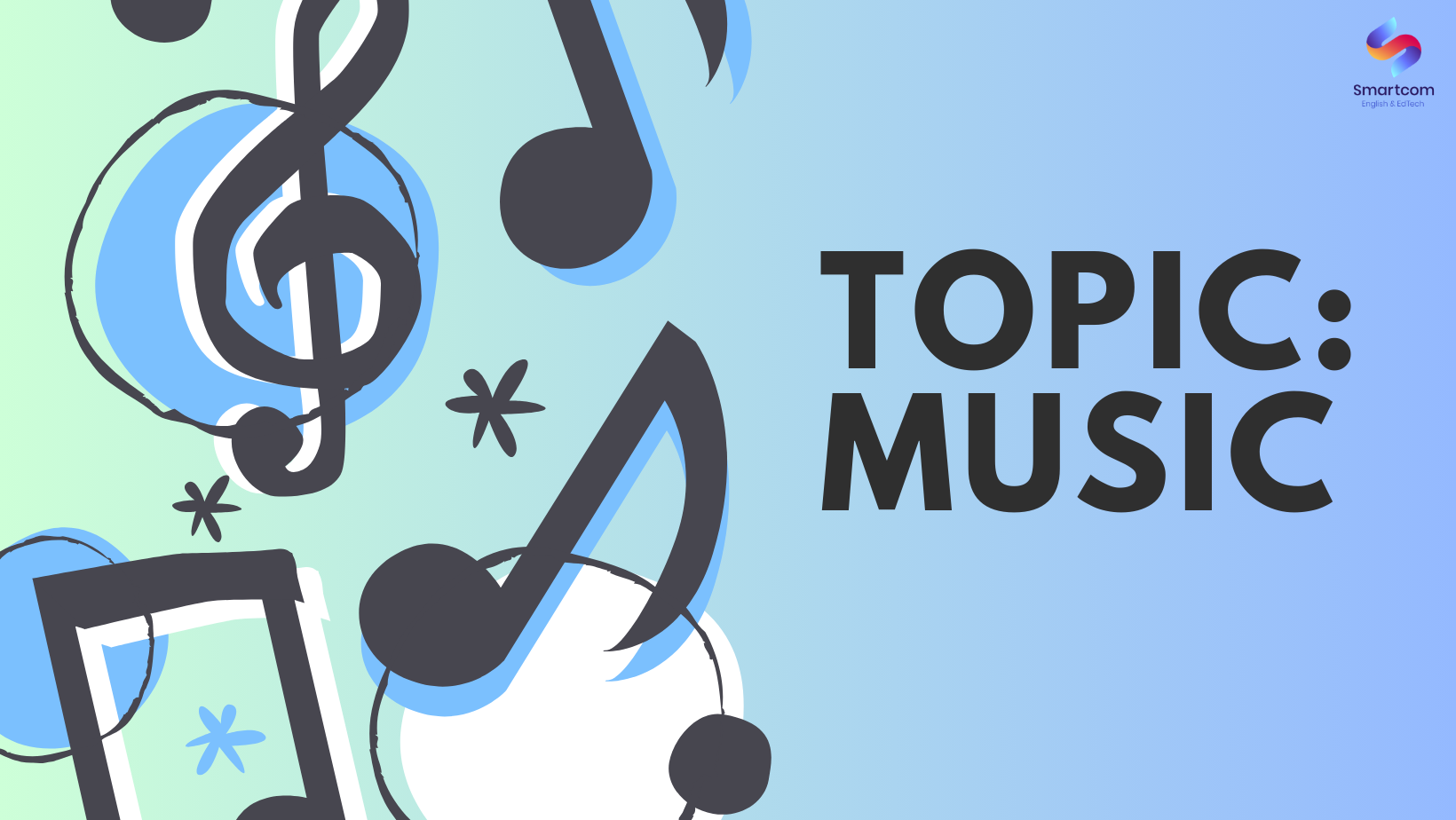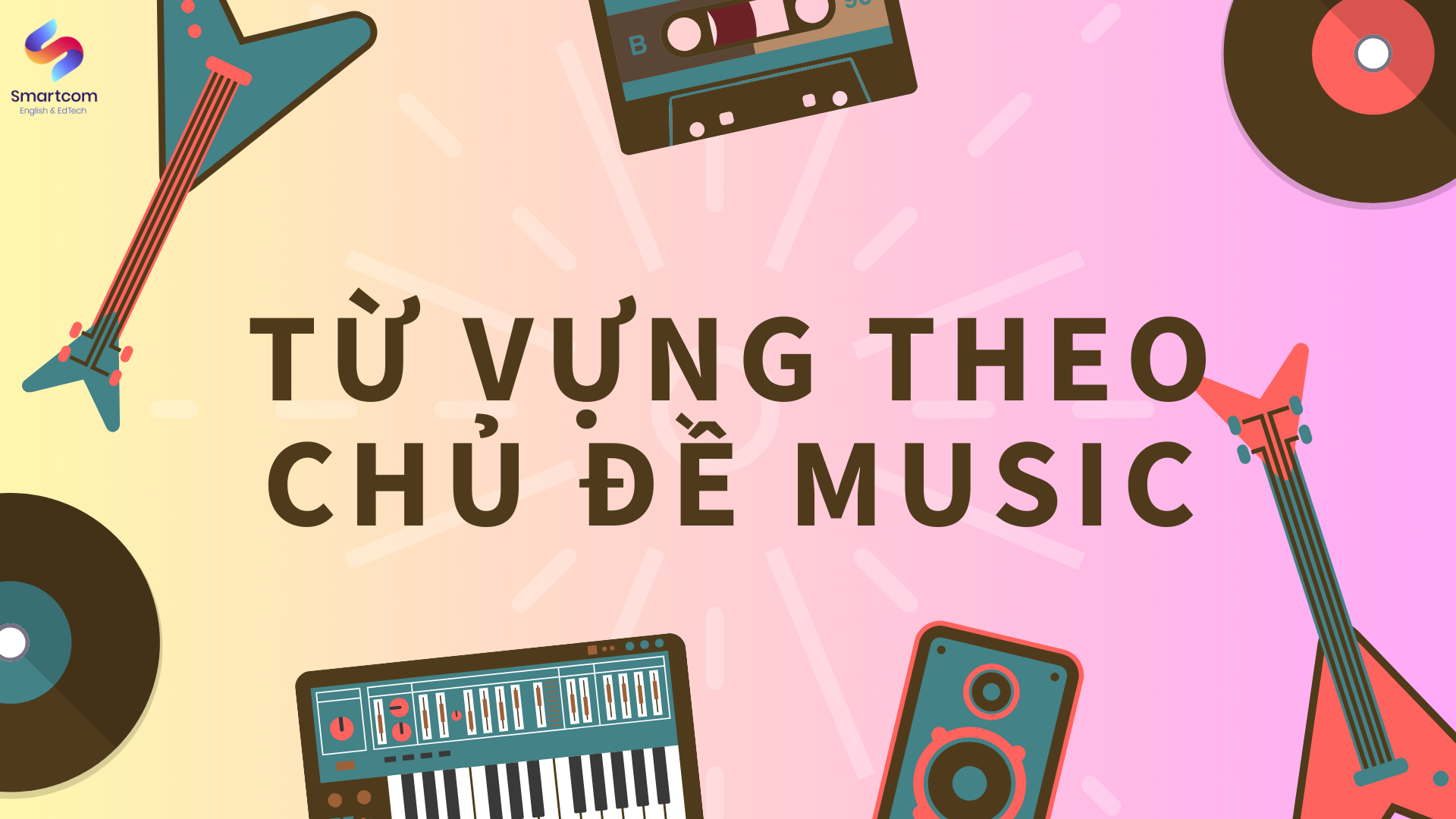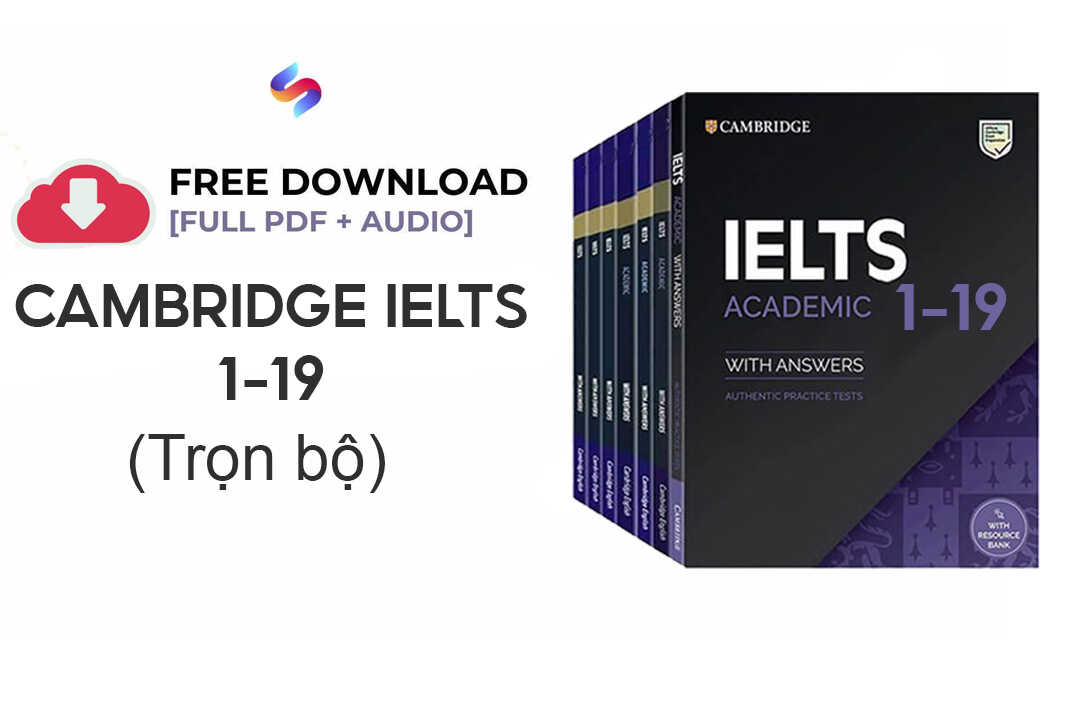Đội ngũ chuyên gia tại Smartcom English là tập hợp những chuyên gia đầu ngành trong lĩnh vực IELTS nói riêng và tiếng Anh nói chung. Với phương pháp giảng dạy sáng tạo, kết hợp với công nghệ AI, chúng tôi mang đến những trải nghiệm học tập độc đáo và hiệu quả. Mục tiêu lớn nhất của Smartcom Team là xây dựng một thế hệ trẻ tự tin, làm chủ ngôn ngữ và sẵn sàng vươn ra thế giới.
Trong con đường ôn thi IELTS, việc nắm vững từ vựng không chỉ giúp làm phong phú vốn ngôn ngữ mà còn giúp bạn tự tin và linh hoạt khi tham gia các bài kiểm tra. Hôm nay Smartcom sẽ giới thiệu những từ vựng IELTS theo chủ đề Music để bạn có thể tham khảo và áp dụng vào trong quá trình ôn IELTS, đặc biệt là 2 kĩ năng Nói và Viết.

Học từ vựng IELTS về âm nhạc giúp làm quen với các từ ngữ và ngữ cảnh thường xuất hiện trong bài thi nghe và đọc hay kể cả trong đời sống hằng ngày. Từ đó, thí sinh có thể dễ dàng làm quen và mở rộng khả năng sử dụng ngôn ngữ của mình.
Từ vựng tiếng Anh IELTS theo chủ đề Music (Âm nhạc)
Từ vựng tiếng anh IELTS phổ biến về Âm nhạc
- Catchiness /ˈkætʃɪnəs/: độ bắt tai
- Tune /tuːn/: âm điệu
- Erratic /ɪˈrætɪk/: thất thường
- Gig /ɡɪɡ/: buổi biểu diễn (của một ca sĩ hay một nhóm nhạc)
- Live concert /laɪv ˈkɒnsərt/: buổi hòa nhạc (của một hoặc nhiều ca sĩ)
- To mix up /tuː mɪks ʌp/: kết hợp
- Beat /biːt/: tiết tấu
- Lyrics /ˈlɪrɪks/: lời bài hát
- Note /noʊt/: nốt nhạc
- Duet /duːˈɛt/: song ca/ biểu diễn đôi
- Rhythm /ˈrɪðəm/: nhịp điệu
- Meter /ˈmiːtər/: nhịp
- Inspirational /ˌɪnspɪˈreɪʃənl/: truyền cảm hứng
- Serene /səˈriːn/: nhẹ nhàng, an nhiên
- Angelic /ænˈdʒɛlɪk/: tựa thiên thần
Từ vựng tiếng anh IELTS về các thể loại Âm nhạc
- Classical /ˈklæs.ɪ.kəl/: nhạc cổ điển
- Rock /rɒk/: nhạc Rock
- Jazz /dʒæz/: nhạc Jazz
- Blues /bluːz/: nhạc Blue
- Ballad /ˈbæl.əd/: nhạc Ballad
- Orchestra /ˈɔːrkɪstrə/: nhạc giao hưởng
- Opera /ˈɑːprə/: nhạc thính phòng
- Epic music /ˈepɪk ˈmjuːzɪk/: nhạc không lời
- Theme song /θiːm sɔːŋ/: nhạc nền
Những cụm collocation về Âm nhạc
- Viral sound: âm thanh nổi tiếng
- Serene melody: Giai điệu nhẹ nhàng.
- Angelic voices: Những giọng hát thiên thần.
- Melodic rhythm: Nhịp điệu du dương.
- Inspirational music: Âm nhạc truyền cảm hứng.
- Catchy tune: Bản nhạc bắt tai.
- Upbeat melody: Giai điệu lạc quan.
- Erratic rhythm: Nhịp nhàng không đều
- To mix up genres: Kết hợp các thể loại nhạc.
- Rhythmic beat: Nhịp nhàng.
- Expressive lyrics: Lời bài hát sâu sắc.
- A vocal coaching session: buổi huấn luyện thanh nhạc
- A whisper in my ear: như thì thầm vào tai
- A waste of time: phí thời gian
- Nonsensical messages: những thông điệp vô nghĩa
Một số câu hỏi Speaking thuộc chủ đề Music mà bạn có thể tham khảo
Speaking Part 1
- What’s the most popular type of music where you live?
TikTok Sounds would be the most common one. Many TikTokers prefer using short parts of songs and try to remix them, which introduces extra tunes to make songs catchier and more hyped up. Even original songs are not that common compared to viral sounds on TikTok. Also, due to their shortness, TikTok Sounds are easy to remember.
- What kind of music do you listen to?
I have a diverse taste in music, enjoying various genres based on my mood. For relaxation, classical music is my go-to, offering a soothing atmosphere. On energetic days, I prefer upbeat genres like pop or rock to stay motivated. Additionally, exploring world music allows me to discover unique sounds and rhythms, making my music preferences quite eclectic.
- What music do your friends like? Do they enjoy the same type of music?
My bestie is obsessed with K-pop, which has recently gotten more and more popular. Even though she doesn’t understand the lyrics, the catchiness of the songs still draw her attention. She loves ballads, too, but doesn’t listen to them very often. While she believes that ballads should be listened to when people feel down, I completely disagree with her.
Speaking Part 2
- Describe a music genre that you enjoy listening to.
Jazz, a genre that resonates deeply with me, holds a special place in the world of music. Known for its rich history, improvisational spirit, and diverse sub-genres, jazz has an enduring appeal that captivates listeners.
The beauty of jazz lies in its spontaneous and improvisational nature. Unlike many other music styles, jazz embraces freedom in performance, allowing musicians to engage in creative dialogues through their instruments. This element of surprise and unpredictability makes each jazz piece a unique experience, drawing me into the magic of the moment.
Beyond its musical intricacies, jazz offers a vast array of sub-genres and styles. From the lively rhythms of swing to the intricate harmonies of bebop and the soulful expressions of contemporary jazz, there’s a diverse landscape to explore. This variety ensures that jazz remains a genre suitable for different moods and occasions, keeping my musical journey ever-enriched.
Furthermore, jazz carries a significant cultural and historical weight. Originating as a form of artistic resistance during challenging periods in history, jazz musicians used their craft to convey powerful messages. This cultural context adds depth to the music, enhancing my appreciation for the genre and connecting me to the broader narrative of human expression.
Speaking Part 3
- How has the music industry changed over the last few decades?
The landscape of music has experienced substantial changes throughout the years. Technological progress has transformed the entire process of music creation, dissemination, and reception. The advent of digital platforms and streaming services has expanded the reach of music to a broader demographic. Moreover, diverse genres have undergone evolution, and novel styles have surfaced, mirroring the dynamic shifts in the preferences and tastes of the audience.
- In your opinion, what role does music play in people’s lives?
From my point of view, music holds a vital place in people’s lives. It serves as an expressive outlet, fostering a sense of community through shared preferences and contributing to cultural identity. Moreover, music has educational benefits, enhancing cognitive skills and creativity, particularly in children. It plays a crucial role in enriching emotions, strengthening social bonds, and promoting intellectual development.
Trên đây là list từ vựng IELTS thuộc chủ đề Music mà bạn nên ghi nhớ. Hy vọng sau bài viết này bạn sẽ tích lũy thêm được nhiều IELTS Vocabulary hay và áp dụng hiệu quả vào quá trình học và luyện thi IELTS. Smartcom chúc các bạn đạt được kết quả cao trong kì thi sắp tới!
Kết nối với mình qua
Bài viết khác



![[PDF + Audio] Tải Sách IELTS Cambridge 19 (Kèm đáp án)](https://smartcom.vn/blog/wp-content/uploads/2024/06/ielts-cambridge-19_optimized.png)


![[PDF + Audio] Tải Sách IELTS Cambridge 17 (Kèm đáp án)](https://smartcom.vn/blog/wp-content/uploads/2024/07/sach-ielts-cambridge-17_optimized.jpg)

![[PDF + Audio] Tải Sách IELTS Cambridge 15 (Kèm đáp án)](https://smartcom.vn/blog/wp-content/uploads/2024/07/ielts-cambridge-15_optimized.jpg)








